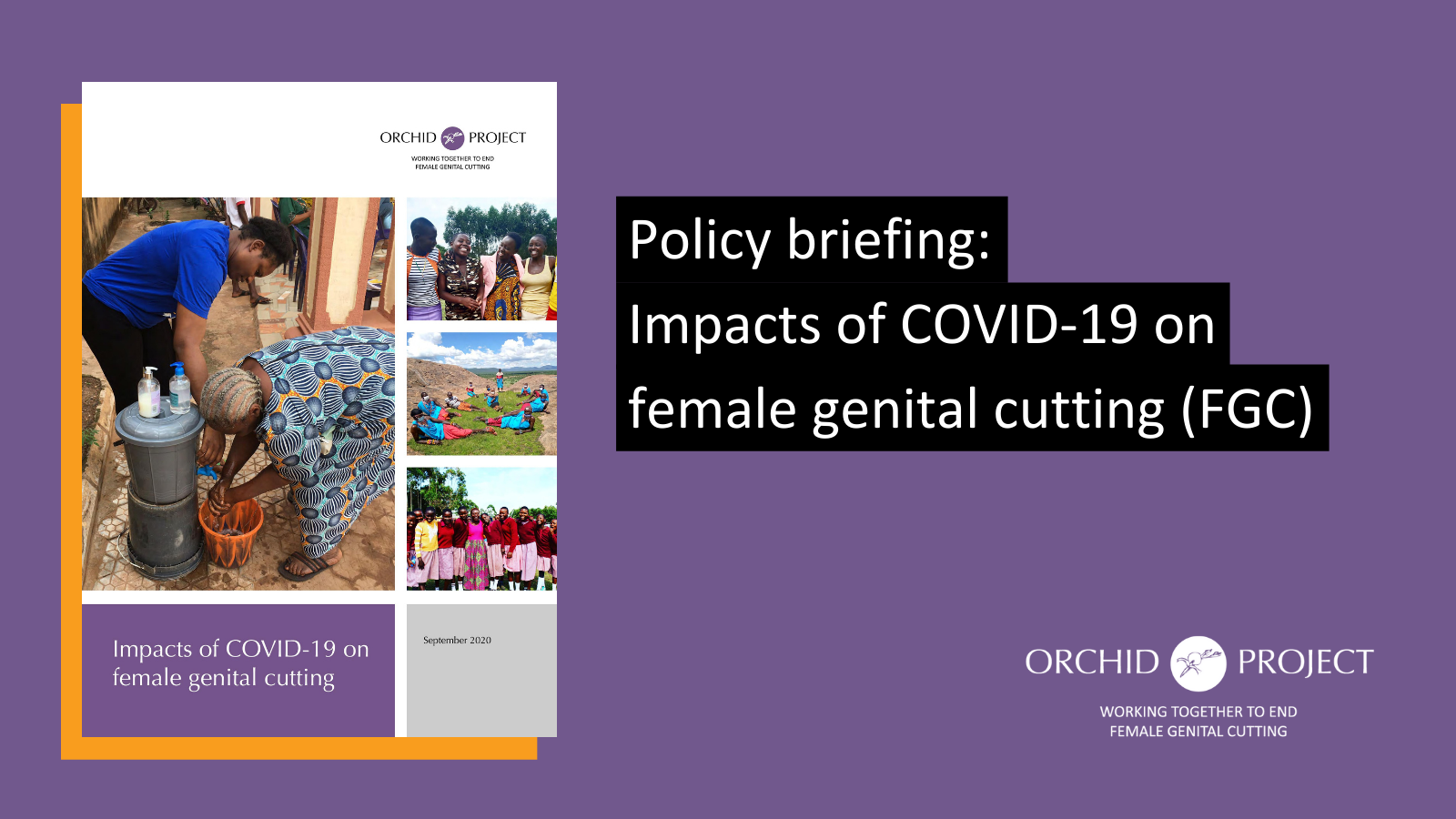By Hunter Kessous
Reports of an increasing rate of female genital cutting (FGC) began early in the pandemic. We are now nine months into the lockdowns and school closures, which have propagated the cutting of young girls. In response, the Orchid Project, decided to further investigate the impact of COVID-19 on the practice of FGC and the movement to end it. The Orchid Project is a nongovernmental organization based in the United Kingdom advocating for the end of FGC globally.
Throughout the summer, various grassroots organizations and non-governmental organizations have hosted webinars elucidating the effects of COVID-19 on specific organizations. Sahiyo has shared blog posts reflecting on some of these webinars, which have focused on work in Nigeria and Kenya. There are some key pieces of information shared between these webinars and the Orchid Project’s reports. For example, COVID-19 induced lockdowns and school closures are creating opportunities for FGC to be performed undetected. When girls stay home, they are automatically at a greater risk of undergoing FGC. Furthermore, safe spaces, such as shelters and mental health services, have been closed down. Even medical attention is difficult for FGC survivors to receive, as resources have mainly been diverted to the pandemic. Lack of essential health services and safe spaces for girls and women is a serious concern.
According to the report, “Resourcing and programming to end the practice in Asia are extremely limited, so the impact of the COVID-19 pandemic on activities to end FGC have been less significant than in West and East Africa.” The report gives an alarming account of how economic hardship caused by the pandemic has also led to an increase in FGC. In some communities, girls who have been cut are often seen as more marriageable and receive higher bride prices. The bride prices can then be exchanged for food and essential supplies, which has motivated families to cut their girls in this time of extreme economic hardship. Another economic factor involves former cutters who have been returning to the practice, in need of the compensation it will provide.
In addition to affecting the practice of FGC, there have also been drastic effects on the movement to end FGC. Nearly all of the groups that were interviewed by Orchid Project for the report have experienced severe restrictions on programming due to stay-at-home and distancing orders. Many organizations have responded by shifting their programming to virtual and media-based formats. However, this is not without its own challenges. Unequal access to technology and internet, along with the often high prices of radio and television communication, have been major obstacles to continuing community dialogues about FGC. The greatest need that the grassroots organizations are currently facing is urgent, flexible emergency funding.
This is not to say that the grassroots organizations have not adapted to the dilemmas created by COVID-19. There have been many creative approaches to continuing their important work. Some in-person programming has continued with social distancing and the use of personal protective equipment. WhatsApp and social media platforms are being used to share key information, stimulate dialogues, and share podcasts. Hotlines have been created for at-risk girls; and some activists are even housing these girls in their own homes. The movement to end FGC has certainly taken a hit, but it is not without hope, thanks to the ingenuity and dedication of grassroots activists worldwide.
Read the full report by the Orchid Project.

